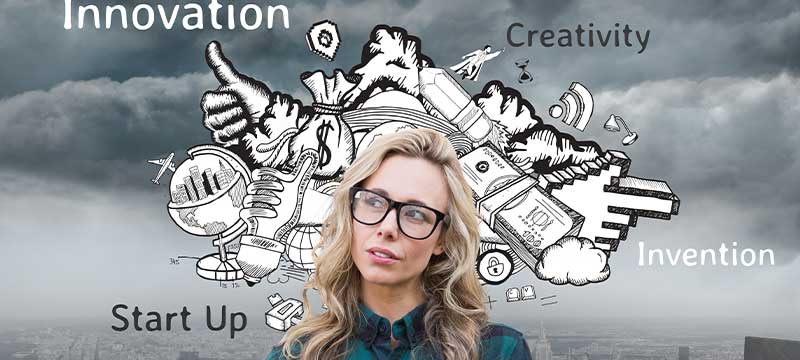
Different Ways You Can Explore Innovative Solutions for Success
October 3, 2024

Innovative solutions to acquire a competitive advantage, disrupt industries, and grow swiftly are continually sought after by start-up businesses in the ever-changing world of entrepreneurship.
The conventional wisdom about starting and expanding a company is being rethought in this age of rapidly developing technologies and shifting customer preferences.
Startups are changing the game when it comes to how companies function and provide value. They're doing this by using new technology and adopting innovative business strategies. Read on to learn about some of the cutting-edge innovations that are changing the face of the startup scene and opening doors to previously unimaginable success.
- Using Agile Approaches:
To improve their agility, speed, and adaptability, more and more start-ups are embracing agile approaches. In an effort to speed up product development, improve cooperation, and simplify procedures, several sectors are adopting agile concepts, which first emerged in software development. Iterative development and project management by breaking down large projects into smaller ones allows start-ups to react quickly to changes in the market, integrate user input, and create products that are loved by their target audience.
- Making Use of AI and ML:
Machine learning and artificial intelligence are changing the game for startups by helping companies automate processes, provide more tailored experiences to customers, and mine data for actionable insights. With the help of AI and ML technologies like natural language processing and predictive analytics, new businesses can streamline their operations, make data-driven choices, and meet the changing needs of the market with novel goods and services.
- Embarking on the Blockchain:
Financing, supply chain management, and digital identity verification are just a few of the old business paradigms that blockchain technology is upending with its decentralized and secure solutions. To increase trust with their consumers, simplify operations, and boost transparency, start-ups are using blockchain technology. With its ability to create immutable records and enable peer-to-peer transactions, blockchain technology has the potential to completely transform new businesses in a wide range of sectors.
- Adopting a Work-from-Home Perspective:
Startups' approaches to team building and management are changing as a result of the gig economy. Many new businesses are shifting their focus from hiring full-time workers to taking use of the enormous amount of freelance talent that exists throughout the world. Startups may save money on overhead, get experts on demand, and grow their operations more effectively by accepting remote employment and flexible agreements. Upwork, Freelancer, and Total are just a few of the platforms that have simplified the process for start-ups to find freelancers and put together agile teams that meet their unique requirements.
- Promoting Symbiotic Ecosystems:
Startups that succeed know how to develop ecosystems and collaborate with others. Startups may get access to resources, knowledge, and market networks that would be inaccessible on their own by forming partnerships with other businesses, whether they are established or not, as well as with academic institutions and research facilities. The development and success of start-ups in competitive markets are fueled by collaborative ecosystems, which provide chances for co-innovation, information exchange, and market expansion.
- Making Socially Responsible and Sustainable Practices a Priority:
Sustainability and social responsibility are becoming operational priorities for start-ups in today's socially aware environment. New businesses are increasingly integrating environmental and social concerns into their strategic planning, with practices ranging from greener production methods to community-based projects. Startups may gain a great image, stand out in the market, and appeal to socially aware customers by embracing sustainable practices and making a beneficial impact on social concerns.
In summary:
Every thriving new business endeavor revolves on innovation. Startups have the potential to transform whole sectors, make a significant impact, and achieve long-term success by adopting agile processes, making use of new technology, and cultivating collaborative ecosystems. If they possess the correct combination of imagination, tenacity, and flexibility, start-ups may shake up industries, make money, and make a difference in the world. Startups that want to succeed in today's fast-paced, highly competitive market must always be on the lookout for new and creative ways to solve problems.